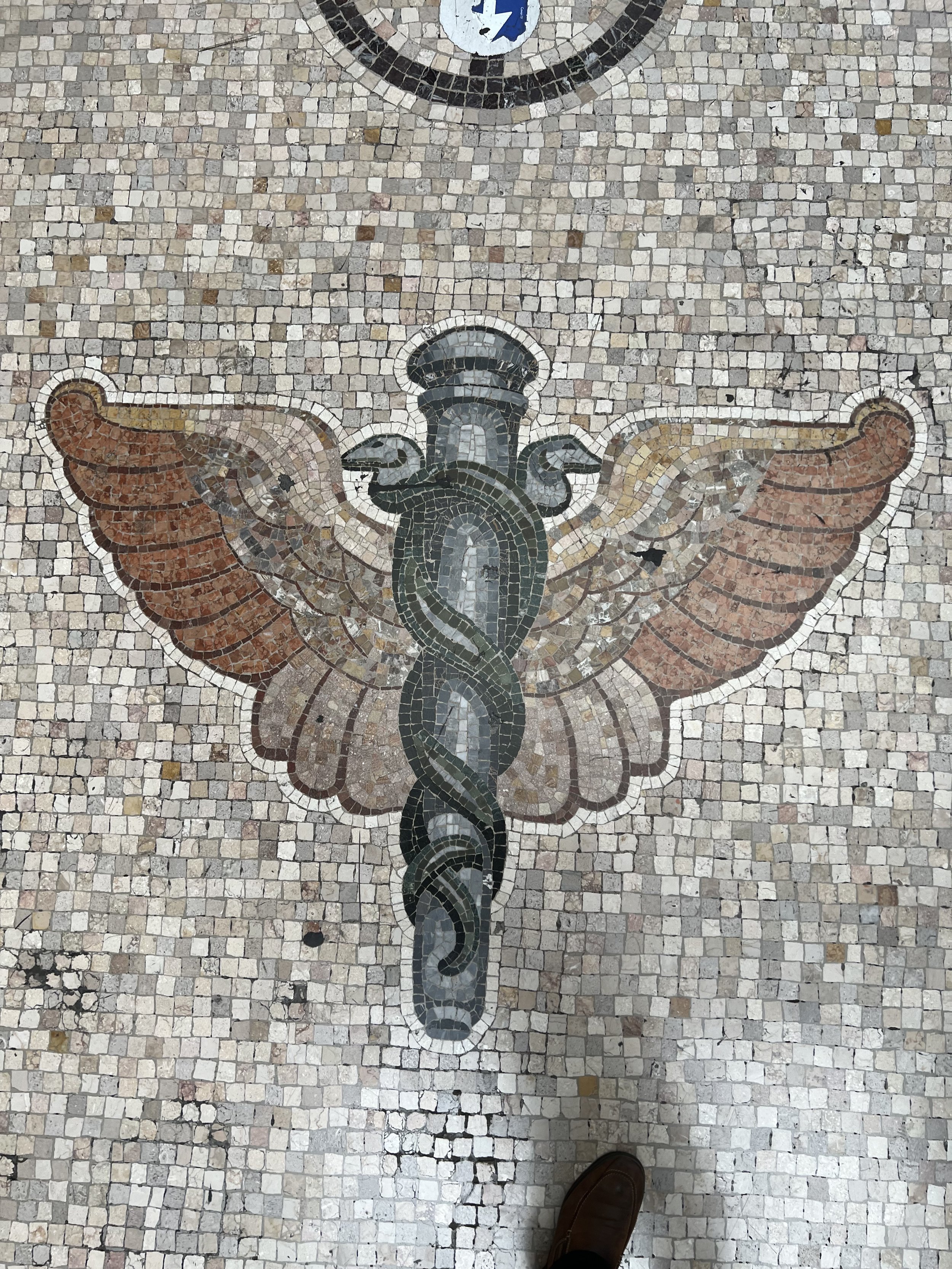
The Voice of America’s Doctors.
Here Are the Changes for Which USMA Action Is Fighting!
Recently, USMA Action introduced itself to colleagues and friends alike while asking for assistance in the effort to create an organization that will, among other things, appropriately represent the House of Medicine. That communication resulted in further questions from our colleagues; most pressingly, what is it that USMA Action, as an organization geared towards the defense and promotion of the medical profession, aims to fight for? In other words, what are the issues on which USMA Action aims to make progress?
USMA Action is the sword and shield of the United States Medical Association. It is dependent on its decisions, priorities, and guidance. For this reason, it is imperative that physicians hoping to positively influence the environment in which we practice join the United States Medical Association.
That being said, what are the priorities of USMA Action? Here, they are, laid out for your review:
General Issues Regarding the Practice of Medicine.
Every position USMA Action takes is undergirded by the premise that the patient and his or her relationship with his or her physician is the most important asset in healthcare.
The sanctity of this relationship and its independence from outside influences is to be protected at all costs. Per the oath every officer at the USMA and at USMA Action takes, our loyalty lies only with the doctors and those actions/interventions they take in their patient’s best interests.
Medical Economics
USMA Action supports any and all efforts at maintaining the independence of the medical profession, its allegiance to the patient, and the protection of the patient-physician relationship. Alternatively, the USMA opposes any and all efforts that will erode the independence of physicians when taking care of their patients. Toward this end, the following are examples of models that the USMA opposes and supports:
i. Support:
Direct physician care (includes direct primary care but acknowledges similar positions for the various specialties that may not be considered primary ports of entry into care);
Physician ownership of medical practices;
Physician ownership of surgery centers and hospitals.
Transparency in insurance reimbursement schedules so that all; physicians and patients alike, may have access to information regarding insurance reimbursement schedules;
Reimbursement of physician services at usual and customary charges as determined by the patient, the physician, and the market within which they interact;
Physicians’ abilities to directly contract with the patients.
Voluntary call participation; and
Physician reimbursement for call participation.
ii. Oppose:
Any business model that takes away physician autonomy. For example:
a. Mandatory participation in any third-party prescribed practice model or legislation that seeks to give undue advantage to such models;
b. Insurance mandates;
c. Government mandated services;
Hospital ownership of medical practices;
Insurance ownership of medical delivery institutions;
Non-physician ownership of medical practices;
Third-party mandated fee schedules;
Third-party mandated limitations in physician services or third-party restrictions on physician services;
Restrictions on physicians’ abilities to directly contract with his or her patient, or to have physicians bill patients for differences between third-party reimbursements and the physician’s usual and customary fees; and
Unreimbursed call participation.
Medical Education
The biased and agenda-driven delivery of medical education to our students, graduate medical students, and practicing physicians is among the biggest threats to the future of American healthcare. The guise of medical education is too often used as an indoctrination tool for our students and a method by which specific corporate and political interests are promoted throughout the physician ranks. USMA Action will take an active position in ascertaining that the education delivered to students, residents, and physicians reflects the highest standards of medicine and promotes the scientific instincts of curiosity and inquiry. Thus, USMA Actions shall:
i. Support
Free and unencumbered research in medicine;
The neutral and unbiased delivery of scientific information to medical students, post-graduate personnel, and practicing physicians;
Medical curricula emphasizing virtue, ethics, and professional conduct in the medical profession;
Medical curricula emphasizing the role of physicians as independent deliverers of care;
Medical curricula that support the pursuit of economic models that enable the independent delivery of care to patients; and
Medical curricula stressing the importance of physician self-policing while holding substandard players accountable for their actions.
ii. Oppose
Third-party bias and undue influences (whether government or otherwise) in medical research;
Biased or agenda driven delivery of information regarding the medical sciences to medical students;
Medical curricula minimizing the importance of virtue, ethics, and professional conduct in the medical profession;
Medical curricula minimizing the role of physicians as independent deliverers of care;
Medical curricula minimizing physicians’ role in policing themselves;
Medical curricula supporting the pursuit of economic models placing third-parties in control of the treatments delivered to the patient;
Any suggestion in medical education that modern American healthcare providers or institutions owned and managed by physicians are inherently racist or negatively biased against any ethnic, sex, economic or racial group;
Any assertion in medical education negating the existence of two sexes, and only two sexes, in human existence, or that conflates gender identification or orientation with a person’s biological sex;[1]
Any effort aimed at erasing a person’s biological sex in essential identification documents (such as passports, birth certificates, drivers’ licenses, etc.) that have normally been seen as essential components of demographic descriptors;
Any effort attempting to convince medical students or practicing doctors that a discordance between one’s biological sex and the proclaimed gender is not indicative of a psychological disorder;
Although the USMA acknowledges the value of board certification and the voluntary adoption of a mandatory initial board certification status as a condition for admission to the community of doctors, it wholeheartedly opposes maintenance of certification by any hospital, surgery center, or licensing board as a condition for admission or maintenance of practice privileges. The USMA also opposes the requirement of specialty, initial specialty board certification as a prerequisite for medical licensure while still encouraging physicians to maintain certification for the purposes of self-gratification, intellectual growth, and personal preparation to take on the challenges of their specialties; and
The unsupervised practice of medicine by non-physicians.
Medical Ethics
USMA Action supports the general ideals maintained in the original Hippocratic Oath absent the requirement that the Oath be sworn by “Apollo the physician, and Aesculapius, and Health, and All-heal, and all the [pagan] gods and goddesses.” Further, USMA looks forward to the adoption of an updated Oath that satisfactorily addresses those fundamental and ethical obligations challenging physicians in today’s practice environment.
It is inherent upon the physician to acknowledge the sanctity of human life. Thus, a physician may not participate in a process by which his or her patient is killed.
Under no circumstances may a physician allow his or her political, social, or personal bias towards another to interfere with his or her unbridled commitment for the uncompromising care of his or her patient.
A physician may demand compensation before or after a treatment, but not if such compensation interferes with his or her responsibility to render emergency treatment of a life or limb-threatening condition.
If you agree with restoring effective, time-proven, and ethical approaches to medicine, please join the USMA and support the efforts of USMA Action.
*USMA Action is applying for recognition as a charitable organization pursuant to federal statute 501(c)(4). Contributions are not tax deductible.
[1] The USMA acknowledges the existence of rare genetic disorders where the genetic type may not fit an XX or XY configuration or where the person’s phenotype may not match his or her genotype. These conditions are exceedingly rare and have largely been already identified by medical science.
